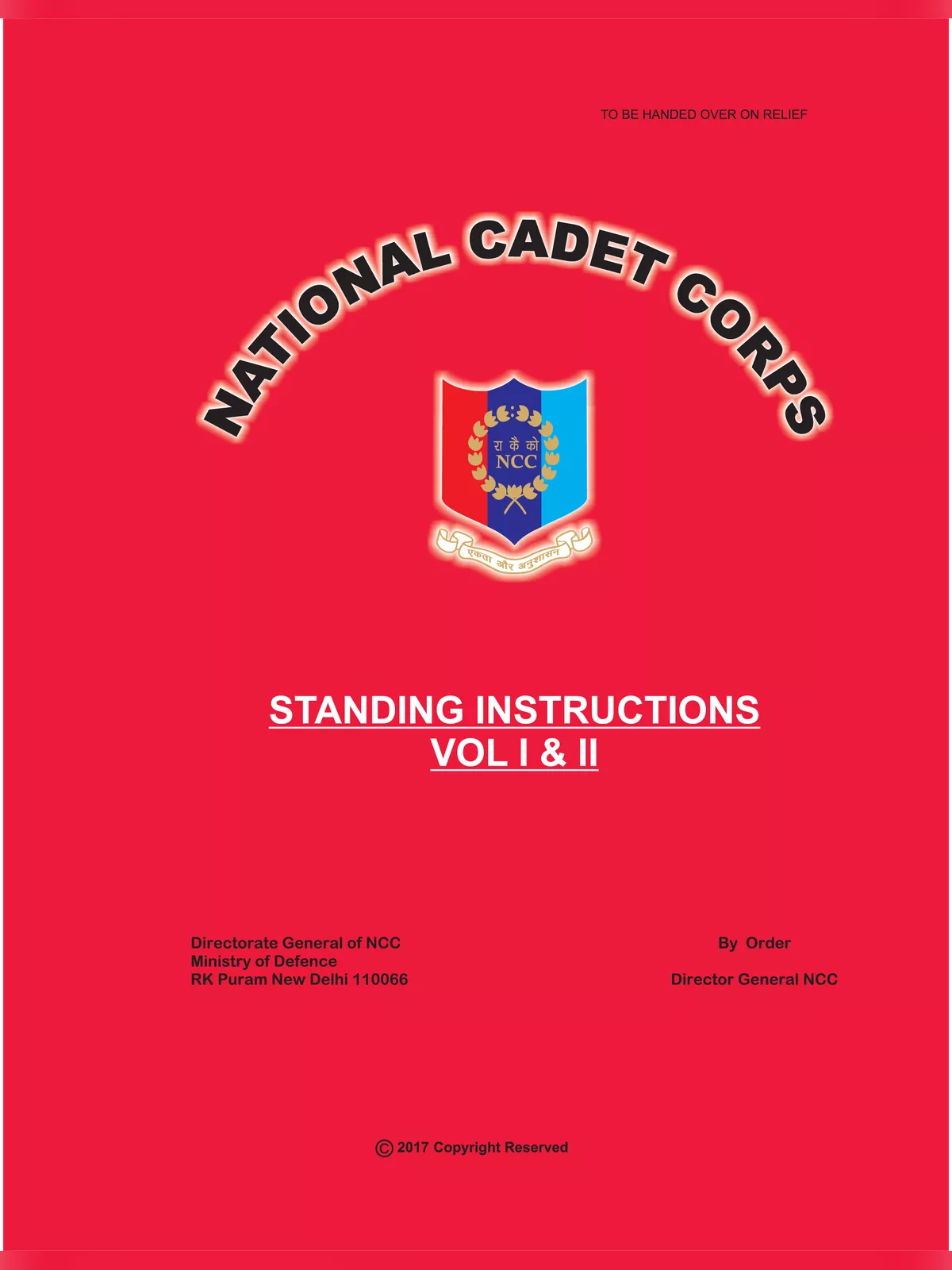NCC Red Book - Summary
NCC (National Cadet Corps) plays a vital role in our country’s growth and development by nurturing its most valuable resource, the youth. To effectively achieve our national goals, it is essential that our training incorporates and instills important qualities and attributes in our cadets.
Aims of the National Cadet Corps (NCC)
The National Cadet Corps Republic Day Camps is an important annual event that showcases the merits of NCC to our Nation. The significance of this event is highlighted by the presence of many dignitaries. The Camp also serves as an inspiration for the young visitors who come to witness various exciting activities organized during this occasion. Therefore, it is crucial that the Camp is conducted with care and efficiency. Moreover, the Inter Directorate Competitions held during the Camp carry substantial significance toward the esteemed Republic Day Banner award. Hence, having clear procedures for these competitions is of utmost importance.
- To develop qualities of character, courage, comradeship, discipline, leadership, a secular outlook, a spirit of adventure, sportsmanship, and the ideals of selfless service among the youth, making them useful and patriotic citizens of India.
- To create a human resource of organized, trained, and motivated youth, providing leadership in all areas of life, including the Armed Forces, and being ready to serve the nation.
- To provide a suitable environment that encourages the youth to pursue a career in the Armed Forces.
Frequently Asked Questions about NCC
1. What is the National Cadet Corps?
The National Cadet Corps (NCC) is a significant youth development movement with incredible potential for nation-building. NCC offers numerous opportunities for the youth of our country to grow, focusing on Duty, Commitment, Dedication, Discipline, and Moral Values. This helps them become responsible leaders and active citizens. The NCC introduces cadets to a variety of experiences, especially in Social Services, Discipline, and Adventure Training. Participation in NCC is voluntary and available to all regular students of schools and colleges, with no obligation for active military service.
2. When did the National Cadet Corps come into existence?
The National Cadet Corps was established under the National Cadet Corps Act XXXI of 1948 (it was passed in April 1948 and came into effect on 16th July 1948).
3. Is the NCC Programme compulsory or voluntary?
It is voluntary.
4. Is the NCC Programme part of educational or military activities?
It is primarily an educational activity.
5. What are the aims of NCC?
The aims of NCC include developing character, leadership, discipline, a secular outlook, a spirit of adventure, and the ideals of selfless service among the youth. Additionally, NCC focuses on creating a trained, organized, and motivated youth resource capable of leading in all areas of life and ready to serve the nation. It also strives to create a supportive environment that encourages youth to pursue careers in the Armed Forces.
6. What is the Motto of NCC?
The motto of NCC is: “UNITY AND DISCIPLINE”.
7. What is the NCC symbol/insignia?
The insignia is the NCC Crest in gold, featuring the letters “NCC”, surrounded by a wreath of seventeen lotuses, set against a vibrant background of red, blue, and light blue.
8. What does the color Red signify in the NCC Crest?
Red symbolizes the Army.
9. What do the colors Dark Blue and Light Blue represent in the NCC Crest?
Dark Blue represents the Navy, while Light Blue represents the Air Force.
10. What do the lotus flowers represent in the NCC Crest?
The seventeen lotuses symbolize the 17 State Directorates.
NCC Red Book
You can easily download the NCC Red Book PDF using the link provided below. This PDF can serve as a helpful resource for understanding more about the NCC and its benefits.
